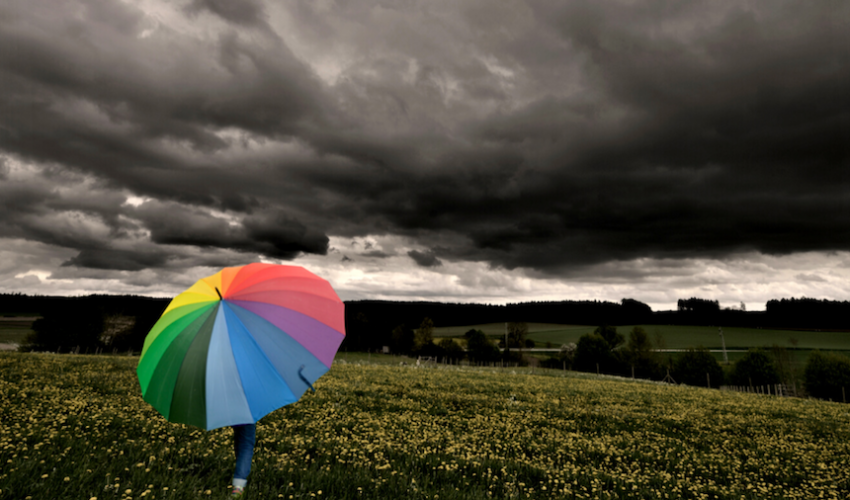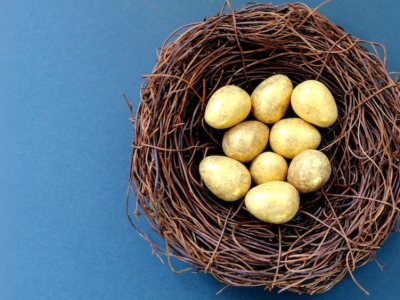Learn » Blog » Good reasons to feel alive in 25
Good reasons to feel alive in 25
Published on 31/12/2024

By Sam Stubbs. Originally published in the The Post.
2024 for many has been a very tough year. Someone I met recently who has been in the same business for 40 years says last year was the worst ever. And going into 2025, it’s pretty easy to see plenty of dark clouds out there. Trump, recessions, rebellions, job cuts, global warming and the increasingly obvious impact of AI on many jobs. Has “survive till 2025” turned into “survive through 25”?
Maybe, but maybe not. For me, 2024 was also a bellwether year, with more silver linings and green shoots than I was expecting. And there are several things that make me optimistic about the upcoming year. The first is how resilient our business community has been. As tough as 2024 was, many have survived, and some thrived. Given that they have endured Covid, inflation and a recession in the last four years, we have a more resilient business environment than ever.
The second was how robust our exports are. The latest stats show exports up 9.1% year on year, and strong growth in all key markets. Our weakening dollar will supercharge this growth. Until we can improve productivity, we are fundamentally an export-led commodity economy, and exports lead to prosperity. That leads into the third reason for optimism - the changing shape of our economy. New and large industries are emerging. Data centres are a case in point. And judging by the number of relatives working as extras in big TV and movie productions, that’s also now a significant and resilient industry.
The fourth is our capacity to invest our own savings to help new businesses thrive, and existing ones grow. KiwiSaver reached $120 billion in 2024, with some of that money flowing into the real economy. One KiwiSaver manager built 51 homes for rent last year. That doesn’t sound a lot, but because of the reliability of KiwiSaver savings, it started building another 622 homes. These are getting to be big numbers. Other KiwiSaver managers started investing in venture capital and privately listed companies. The Australian experience is that pension savings make an economy more robust and able to grow through tough times. Even if we accepted that KiwiSaver would not become compulsory and contributions stayed at the same level, we should still have saved more than $1 trillion in 25 years. Putting that into perspective, it’s 2.8 times our current GDP - a huge sum to invest in our collective well-being.
The fifth reason is the interest rate cycle. After Covid, central banks around the world slammed on the handbrake to growth and forced rates way up to get inflation under control. And it’s worked. So that means rates have started lowering. That can only be a good thing for our mortgage rates and our cost of living. Sixth was the fact that the Government and regulators finally began to understand what a drag on our prosperity excessive bank profits have been. This year, it properly named and shamed them, and started to reign in their more extractive behaviours. It took us 30 years to get into the mess of excessive bank profits, and it will take us years, and perhaps decades, to get back to having fair profits in finance. But change is finally happening.
And the seventh was a personal highlight - the establishment of the Social Housing Funding Agency. Over time, this should help community housing providers access serious amounts of funding from KiwiSaver and wholesale investors. It was launched with an open door for the Government to help supercharge its impact, at no cost to it. Whether the Government gets involved will be an acid test of whether it truly believes in private-sector solutions to public problems.
I don’t predict the future of financial markets - that’s a fool’s game for underemployed economists and strategists. But as an investor, I do pay attention to where the money is coming from, and where it’s going. And while there is a lot to be concerned about, I am now observing long-term trends that will ultimately - in my opinion - underpin a long period of prosperity in New Zealand.
Fundamentally, and most importantly, Kiwis are now saving serious money outside of paying off their mortgage. Those KiwiSaver savings will, in time, find their way into the productive economy, and mean more and better-paying jobs. And that means more taxes paid, which will help pay nurses, teachers and cops more. Huge retirement savings are ultimately why Australia is better off than we are, and 2025 could be the year when that becomes a little more obvious, despite all the bad news.
Happy New Year? We should invest in that.
The information provided and opinions expressed in this post are intended for general guidance only and not personalised to you. These materials do not take into account your particular financial situation or goals and are not financial advice or a recommendation. This post is not intended to convey any guarantees as to the future performance of any of the investment products, asset classes, or capital markets mentioned. Past performance is no guarantee of future performance. Information is current at the time of posting, and subject to change without notice. Simplicity NZ Ltd is the issuer of the Simplicity KiwiSaver Scheme and Investment Funds. For Product Disclosure Statements please visit our website simplicity.kiwi.


